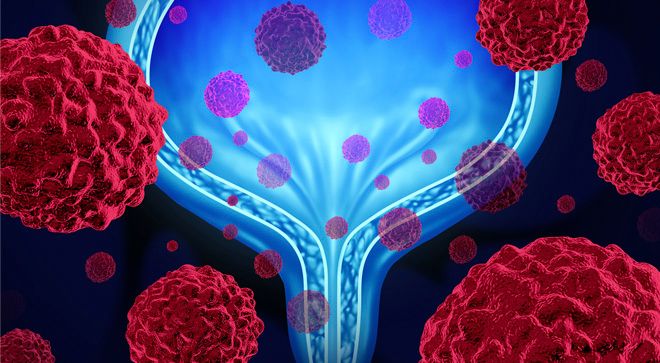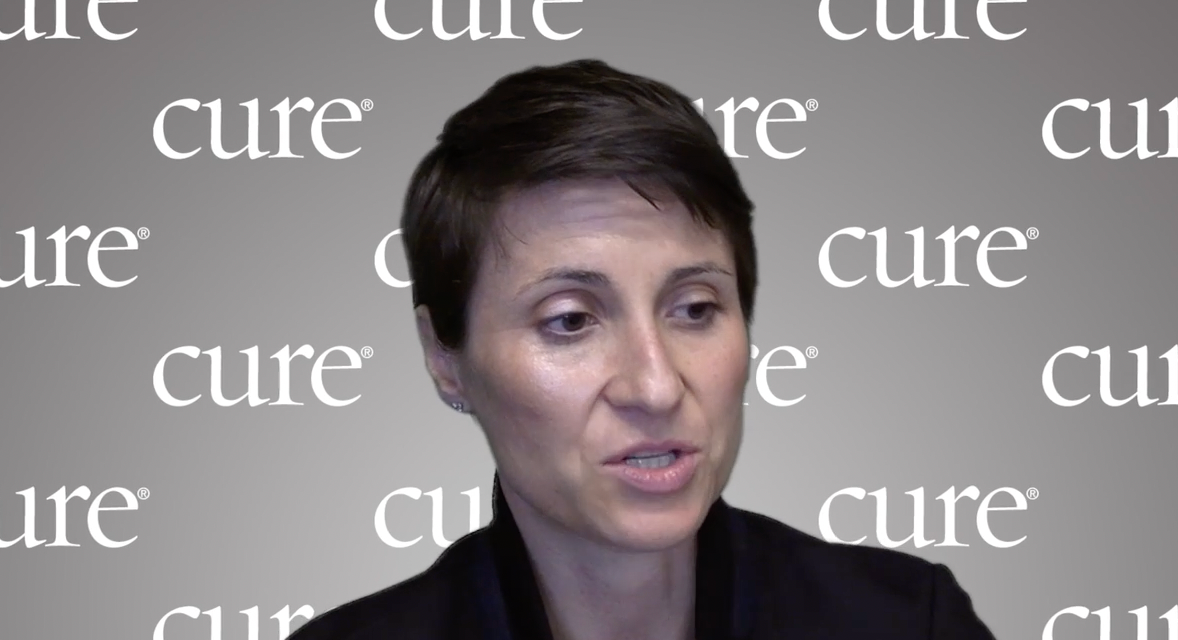
Bladder Cancer
Latest News
Latest Videos
More News

The FDA approved the combination for patients with locally advanced or metastatic urothelial carcinoma who are ineligible for treatment with cisplatin-based chemotherapy.

The phase 2 DESTINY-PanTumor02 trial included patients with HER2-expressing solid tumors such as bladder, pancreatic and rare tumors.

Bladder cancer survivors face a bevy of challenges post-treatment, but an immediately available service strives to ease the burden.

Important data may encourage gender-specific treatment making decisions for patients with bladder cancer.

The addition of Tecentriq to platinum-based chemotherapy/gemcitabine did not boost outcomes in patients with metastatic bladder cancer, according to results from the IMvigor 140 trial.

Researchers identified several biomarkers that may indicate how a patient responds to Padcev, a type of antibody drug conjugate for patients with urothelial carcinoma, a type of bladder cancer.

A clinical trial just kicked off, analyzing Padcev in patients with advanced, unresectable bladder cancer.

Data suggests an association between tumor DNA circulating in plasma and patient responses to neoadjuvant treatment.

From funding updates on the Cancer Moonshot to Howie Rose’s bladder cancer diagnosis and more, here’s what’s happening in the oncology space this week.

The first patient was dosed with lerapolturev in a phase 1/2 clinical trial evaluating the drug in patients with bladder cancer and other solid tumors.

Cancer — and its treatments — can feel like a grueling race, but I’m using frequent follow-ups and an excellent care team to stay ahead of the game.

The Food and Drug Administration is speeding up the review and potential approval of Padcev plus Keytruda for certain patients with urothelial carcinoma, the most common form of bladder cancer.

Patients with non-muscle invasive bladder cancer who currently smoke or previously smoked should consider quitting to possibly improve health outcomes in survivorship, according to an expert.

Adstiladrin represents the first gene therapy approved by the FDA for the treatment of patients with high-risk non-muscle invasive bladder cancer who are resistant to BCG, the first-line standard of care for these patients.

Patients with non-muscle invasive bladder cancer who smoke should consider quitting to possibly improve health outcomes in survivorship, according to an expert.

Sexual dysfunction is not less common in women with bladder cancer who undergo reproductive organ-sparing radical cystectomy, although more research is needed.

Men often decide to tough out their cancer alone, but tough guy Terry Bradshaw is starting to open up about his sometimes-rocky journey with the disease.

From a childhood cancer survivor throwing out the first pitch at Game 4 of the World Series to former WWE champion and actor Dwayne “The Rock” Johnson recording a message for a child with brain cancer, here’s what’s happening in the cancer space this week.

Talking about the end of life can be difficult, but these conversations are crucial for patients with incurable cancer to have with their clinicians, experts say.

From the death of standup comedian and "Love Goddess" Judy Tenuta to professional sports hall-of-famers discussing their cancer, here’s what’s happening in the cancer space this week.

As part of its “Speaking Out” video series, CURE spoke with Dr. Tracy L. Rose, on behalf of the Bladder Cancer Advocacy Network, about support available for patients and caregivers following a bladder cancer diagnosis.

As part of its “Speaking Out” video series, CURE spoke with Dr. Tracy L. Rose, on behalf of the Bladder Cancer Advocacy Network, about the role of the caregiver in bladder cancer and how they can also seek support to aid them.

As part of its “Speaking Out” video series, CURE spoke with Dr. Tracy L. Rose, on behalf of the Bladder Cancer Advocacy Network, about how patients can find clinical trials they may be eligible for.

As part of its “Speaking Out” video series, CURE spoke with Dr. Tracy L. Rose, on behalf of the Bladder Cancer Advocacy Network, about letting physicians know about patient preferences to improve communication and select the right treatment option.

As part of its “Speaking Out” video series, CURE spoke with Dr. Tracy L. Rose, on behalf of the Bladder Cancer Advocacy Network, about how currently available agents are being investigated in combination with one another.








